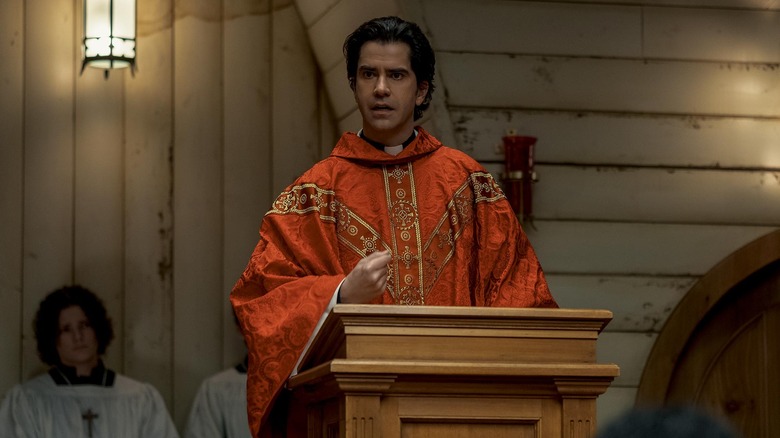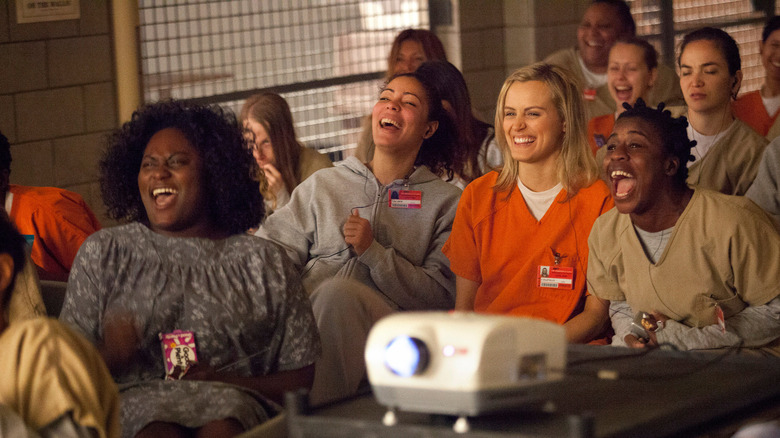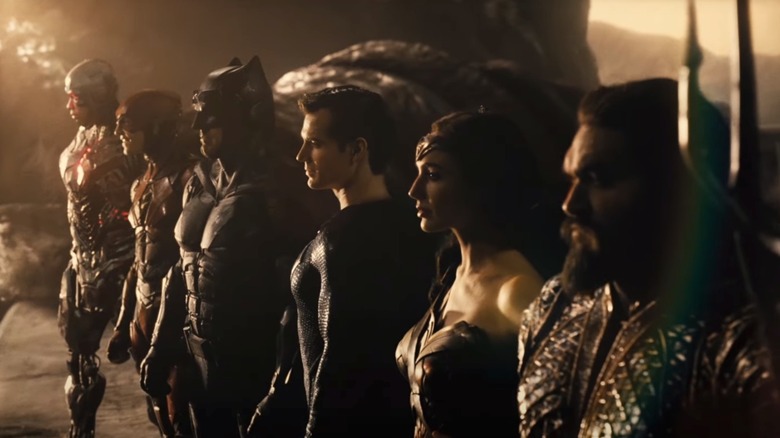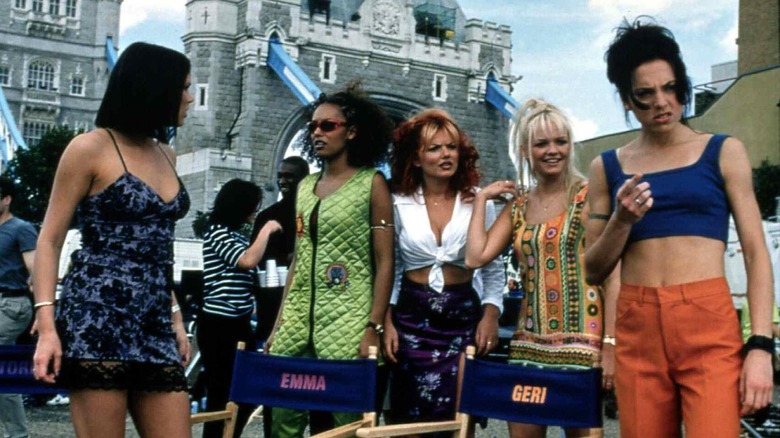Mike Flanagan Thinks Netflix Should Release More Of Their Work On Physical Media — And He's Right
The elusive and exclusive content offered by a streaming service is the dominant way of convincing new subscribers to sign up, and keep current subscribers from canceling. Peacock recently solidified a killer deal with Universal, becoming the streaming home for most of their 2022 releases after a 45-day theatrical window, and Zack Snyder's "Justice League" was a huge selling point to convince people to join HBO Max. Netflix is the undisputed streaming king of the hill, where shows like "Squid Game" and "Stranger Things" permeate the cultural landscape so deeply, they become almost mandatory viewing just to understand what all of the memes and watercooler conversations are about.
Due to that allure of exclusivity, very few shows or movies on Netflix make the jump to a physical release. One of Netflix's own content superman, Mike Flanagan, recently took to Twitter imploring the service to rethink their stance on physical media, after a fan tweeted about their desire to see a bBu-ray release of Flanagan's "Midnight Mass."
I love working for @netflix, and have been strongly encouraging them to rethink their position on physical media. I recommend you all do the same. Physical media is incredibly important, and I very much wish all of my work was available. https://t.co/I6UAanANjU
— Mike Flanagan (@flanaganfilm) December 14, 2021
He also cleared up the confusion some may have about why his projects "The Haunting of Hill House" and "The Haunting of Bly Manor" were given the physical media treatment compared to the lack of plans for "Midnight Mass."
Those were released by Paramount, who were a partner in the Haunting series. Midnight Mass is entirely produced by Netflix, so at the moment there are no plans whatsoever for a physical media release.
— Mike Flanagan (@flanaganfilm) December 14, 2021
While exclusivity is the key to streaming, Flanagan is right, and here's why.
Believe It or Not, Not Everyone Has Netflix
In the current age, it is more surprising than not when someone admits they aren't subscribed to Netflix. There's a multitude of reasons why someone might not be a subscriber, but the biggest one is due to access. People all around the globe, and America in particular, experience something called the digital divide, which refers to the growing gap between marginalized members of society (especially the poor, rural, elderly, and handicapped) who do not have access to computers or the internet compared to those that do. Netflix also runs between $8.99-$17.99 a month which for some people, is not financially feasible.
Streaming services are the digital entertainment version of shopping at a warehouse club like Costco. Yes, it is cheaper in the long run to pay $20 for 10 bags of chips than it is to pay $5 for one bag of chips at the gas station, but sometimes you only have $5. Not everyone is able to spend the monthly fee for access to Netflix's massive catalog, but they may be able to splurge on the purchase of a film on DVD or a box-set of that series everyone keeps talking about. Admittedly, I gifted my own mother a few seasons of "Orange is the New Black" on DVD for Christmas one year because she didn't have Netflix, and that purchase is what inspired her to sign up. The existence of physical media is not also a cost-effective option for some, but it can also be used as an additional sales tactic.
Physical Media Accessibility Is Profitable
The average Netflix subscriber is not going to throw a tantrum if a show or movie becomes available on physical media, because with few exceptions, they're not paying for access to one singular film or series — they're paying for access to the whole kit and caboodle. The benefit of physical media is that it allows an additional medium to spread and share the content, and one that isn't locked to the need for a reliable internet connection or a login.
It's also an additional revenue stream for Netflix that isn't being explored, which seems silly. Snyder's "Justice League" absolutely destroyed the competition in Blu-Ray sales at the time of its release, because if people want something bad enough, they will pay for it. Looking at something like "Midnight Mass" in particular, Netflix is simply leaving money on the table by not providing a collection of Mike Flanagan's work. Is there overhead in creating packaging, and producing the actual physical media? Of course. But the beauty of physical media is that it won't magically disappear into the ether of ones and zeroes, and Netflix will undoubtedly see a return on their physical media investment.
There is Power in Physical Media
There's no way to predict how technology is going to evolve in the future, as we've changed more in the last 20 years than in the last 300 years before it, but there's a permanence in physical media. So many films released on VHS that never made the jump to DVD or Blu-Ray have been somewhat lost to time, which is why distribution labels like Vinegar Syndrome, Arrow, Criterion, and Synapse (just to name a few) are so important to the history of cinema. Hell, I've been trying to cover the Spice Girls movie "Spice World" on my own podcast for over a year, but the DVD goes for about a hundred bucks on eBay and the film is impossible to find through legal means. This means there's an entire generation of people who have next to no access to a film that made $100 million globally at the box office, which gives any of us who still have that limited run DVD copy or VHS we got for our birthdays in 1998 an immense amount of power.
What happens if, heaven forbid, Netflix shudders its doors? It's easy to think that Netflix is too powerful to fail, but that's exactly how we felt about Blockbuster and look what happened there. This isn't a matter of choosing one or the other, but offering both. Netflix knows better than anyone that there's money in evolving with the times. The pendulum swing from physical media to digital streaming has finally shifted back to the middle. Looking at the big picture, there's really no reason why Netflix shouldn't be considering adding more options for physical media.



